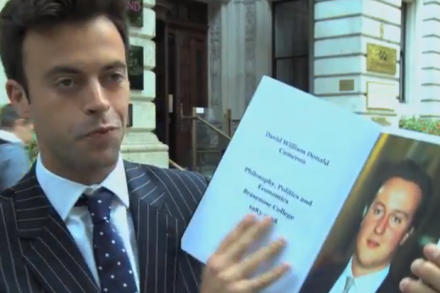House sherry
The Speaker was in trouble. I do not refer to Michael Martin or John Bercow, the two worst Speakers in living memory, who have fallen well beneath mere trouble, into contempt. This was Jack Weatherill, a decent man and a decent Speaker, if not a great one. Even so, his toenail clippings would have made a better Speaker than either of the afore-mentioned. But Speaker Weatherill had committed an offence of which we have all been guilty at some time or another. He had rewritten history; he had retold an anecdote to put himself in a better light. Unfortunately for him, this involved putting Norman Tebbit in a worse light.



















